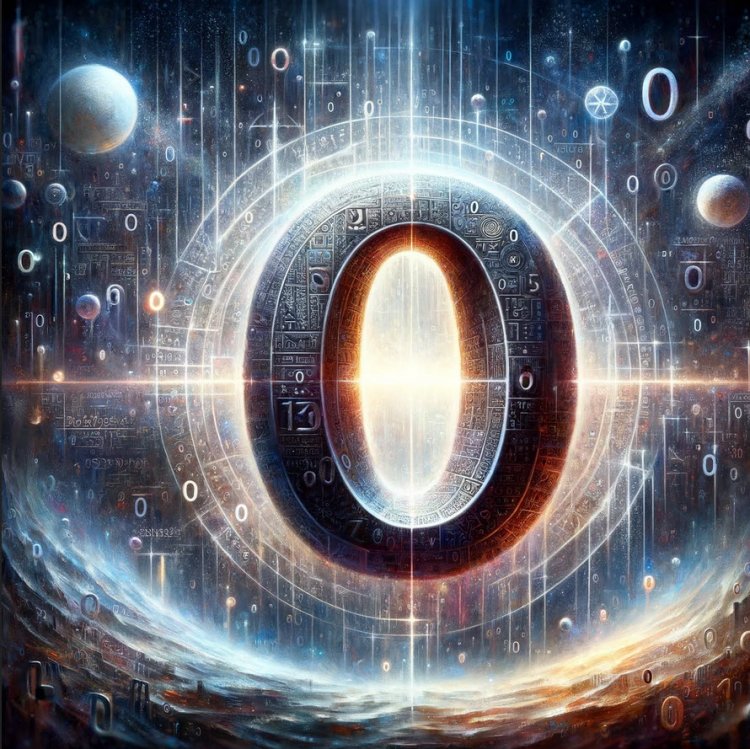Embracing the Void: The Revolutionary Concept of Zero
In the vast expanse of numbers that form the backbone of mathematics, there exists a figure both simple and profound, whose inception transformed the course of mathematics, science, and philosophy: zero. This seemingly unassuming number represents the concept of nothingness, a placeholder, and a fundamental building block in the numerical system that underpins modern civilization. This blog explores the origins, evolution, and impact of zero, a number that has enabled some of the greatest advancements in human thought and technology.

The Genesis of Zero
The concept of zero is as much a philosophical idea as it is a mathematical one. Its journey begins in ancient civilizations, where the absence of quantity, the void, was recognized and pondered upon. However, it was in India, around the 5th century AD, that zero began to take shape as a numerical symbol. Ancient Indian mathematicians, most notably Brahmagupta, formulated rules for arithmetic involving zero, recognizing it as a number in its own right, distinct from merely a placeholder.
Zero's Journey Westward
From India, the concept of zero spread to the Islamic world, where it was further refined by scholars like Al-Khwarizmi, whose work laid the foundations for algebra. In the 12th century, through the translations of Arabic texts into Latin, zero made its way to Europe, revolutionizing mathematics by introducing the decimal system and enabling complex calculations that were previously not possible.
The Power of Nothingness
Zero's significance cannot be overstated. It is the cornerstone of calculus, a branch of mathematics that has propelled advances in physics, engineering, and economics. Zero is pivotal in the development of binary code, the fundamental language of computers. The concept of zero allows us to describe the absence of value, measure temperature, and understand the universe's vastness through the lens of zero-point energy in physics.
Philosophical and Cultural Implications
The notion of zero has also permeated philosophical thought and cultural practices. It challenges the human perception of reality and the universe, symbolizing the void, infinity, and the cyclical nature of life and death in various cultures. In mathematics, the concept of zero has led to intriguing paradoxes and theorems, such as division by zero, which remains undefined and is a subject of continual exploration.
Zero in Modern Times
Today, zero is indispensable in the digital age, forming the binary code that powers computers, smartphones, and the internet. Its presence is felt in algorithms, encryption, and data science, driving innovation and technology. Zero plays a critical role in economics, where it marks the difference between profit and loss, and in science, where it is essential in calculating speed, temperature, and energy levels.
The Future of Zero
As we delve deeper into the realms of quantum computing, artificial intelligence, and theoretical physics, zero will undoubtedly continue to play a pivotal role. Its potential to unlock new technologies and solve complex equations is limitless, mirroring the very essence of zero itself—a representation of both nothingness and infinite possibility.
Conclusion
Zero's journey from a philosophical concept to a fundamental element of mathematics and science underscores its profound impact on human progress. It is a testament to humanity's relentless pursuit of knowledge and the understanding of the universe. Zero reminds us that from nothingness can arise boundless potential and possibilities, shaping the past, present, and future of civilization. As we continue to explore and innovate, zero will remain at the heart of our quest, a symbol of the void that holds the universe together.
What's Your Reaction?
















